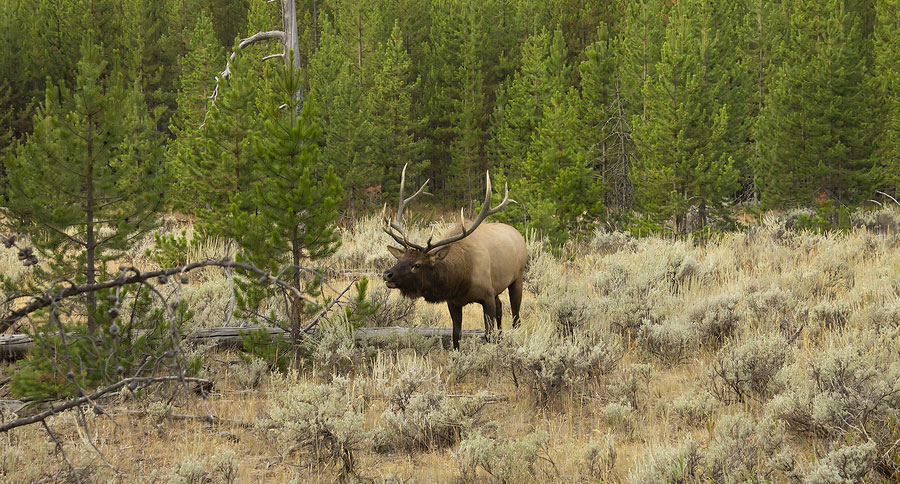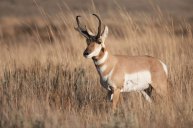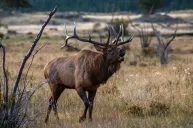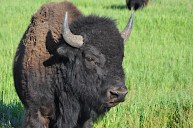This is bad news for those who travel to Idaho to hunt, but good news for residents.
Idaho has become quite the hotspot for hunters in recent years, drawing many out-of-staters looking for a western hunting experience.
In fact, it's become so popular (elk hunting in particular), officials say many state residents have filed overcrowding complaints, prompting the Idaho Fish and Game Commission to intervene.
Beginning in 2021, the commission hopes to cap the number of nonresident elk and deer tags sold and charge higher fees for those hunters. Out-of-staters won't have the same hunting opportunity if the measure goes through.
"It is obviously a significant part of our portfolio," Michael Pearson, the Idaho Department of Fish and Game chief of administration told The Spokesman-Review. "So, in order to offset the impact of less nonresidents (they're proposing) a fee increase. So less nonresidents, but each is paying more."
Nonresident hunters buying licenses and general season tags currently fund about 57 percent of the Fish and Game office's license revenue.
In 2019 alone, nearly 263,000 hunters bought tags for deer or elk, and about 39,000 of those were nonresidents. Under the proposal, the commission could limit the number of nonresident tags issued in any elk zone or big game unit.
"Residents were overwhelmingly in favor of this," Pearson said.
An adult nonresident license currently costs $154.75, plus mule deer tags and elk tags, which cost $301.75 and $416.75, respectively.
Nonresidents will see increases in these license fees, as well as an increase for archery and muzzleloader permits. Resident fees will not increase, however, which means IDFG's revenue could take a hit.
"Our best estimate is that it could impact anywhere between 10 percent to maybe even as high as 20 percent of overall department revenue," Pearson said. "The department doesn't have a position on it. The commission wants this. So we provide technical advice. This is being advanced based on the commission's request."
The proposal can't be approved until 2020, and wouldn't go into effect until 2021.
This original post was published Sept. 12, 2019. The post was updated September 13, 2019, to reflect editorial corrections around details surrounding a proposal to limit nonresident hunting tags. While the proposal calls for a cap on nonresident tags for elk and deer, it does not in any way suggest a cap on nonresident hunting licenses.
NEXT: BUSCH BEER LAUNCHES THE BIG BUCK HUNTER PERMIT BENEFITING WILDLIFE CONSERVATION
WATCH




